Sponsored Conferences
The Philosophy Research Initiative sponsors conferences and symposia that its members organise or co-organise. These conferences aim to highlight areas of research strength of its members as well as to promote the exchange of ideas.
Upcoming Conferences
To be advised shortly.
Past Conferences
ASCP Annual Conference (21-23 November, 2018)
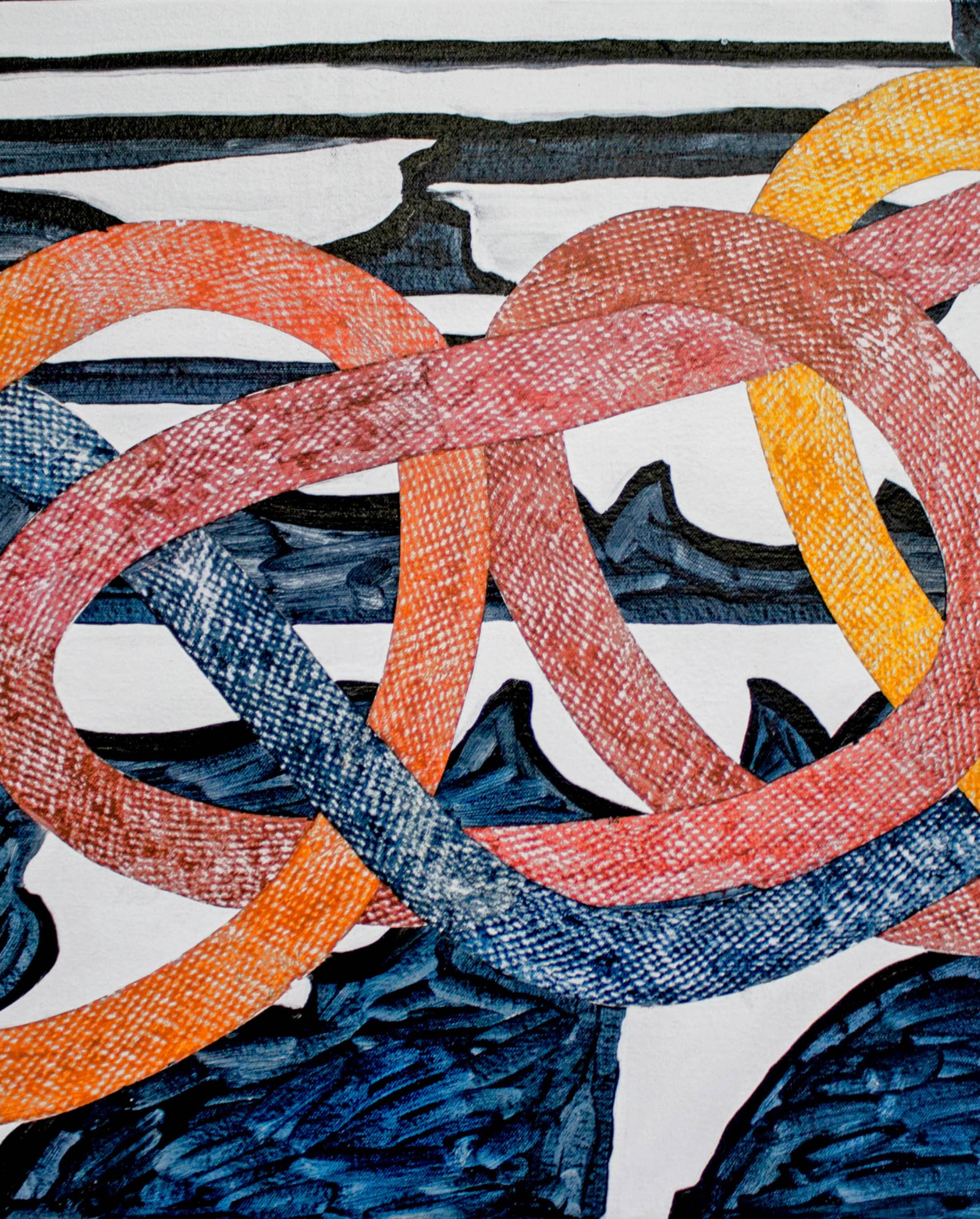
Australasian Society for Continental Philosophy(opens in a new window)
21 - 23 November, 2016
College of Fellows Inaugural Conference (24 - 25 November, 2016)
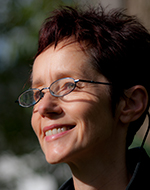 College of Fellows Inaugural Conference
College of Fellows Inaugural Conference
24 - 25 November, 2016
This conference of the first group of the College of Fellows is designed to showcase the range of interests among the Fellows and to promote the work carried on in philosophy at Western Sydney University. (read more) (opens in a new window)
Spinoza's Provocations (1 - 2 December, 2016)
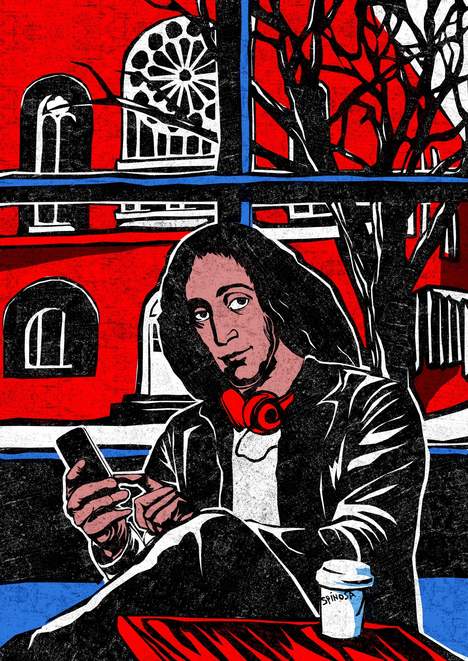 Spinoza's Provocations
Spinoza's Provocations
1 - 2 December, 2016
There is an explosion of interest in Spinoza's philosophy in the past decade or so. What characterises this revival of interest is an increasingly wider perspective in examining his works. (read more) (opens in a new window)
Power and Joy: A Workshop on Spinoza (27 November 2015)
Organised by Dimitris Vardoulakis
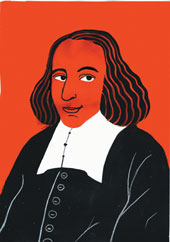
Time: 9.00 am to 4.30 pm
When: Friday, November 27, 2015
Location: Western Sydney University Building 5, Room 5.LG.01, Bankstown Campus
Programme
9.00 am to 10.00 am
Disability and Dance: From the Disabled Sublime to Joy
Janice Richardson
10.00 am to 11.00 am
The Authority of Reason: Proof, Rhetoric and the Movement of Thought in the Ethics
Joseph Hughes
11.00 am to 11.30 am Break
11.30 am to 12.30 pm
Pause for Thought: Spinoza on Wonder
Genevieve Lloyd
12.30 pm to 1.30 pm
Grammars of Conatus; or, On the Primacy of Resistance in Spinoza, Foucault, and Deleuze
Cesare Casarino
1.30 pm to 2.30 pm Lunch
2.30 pm to 3.30 pm
Human Nature . . . As It Really Is
Moira Gatens
3.30 pm to 4.30 pm
The Four Senses of Neighbourly Love in the Theological Political Treatise
Dimitris Vardoulakis
For catering purposes, please register your attendance by emailing philosophy@westernsydney.edu.au.
Politics and Art in Deleuze (25 - 26 November 2015)
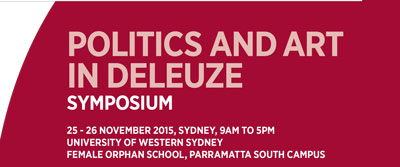
Keynote Speaker: Cesare Casarino (opens in a new window) (University of Minnesota)
Speakers: Jon Roffe, Simone Bignall, Justin Clemens, Paul Patton, Hannah Stark, Ian Buchanan, Craig Lundy, Sabrina Achilles, Sally Macarthur, Ian Stevenson, Joseph Williams, Michelle Stead, Christina Green, Norma Lam-Saw
Symposium Program and Abstracts PDF, 295 KB (opens in a new window)
The symposium aims to consider the importance of the arts to Deleuze-Guattari political thought: in what ways does the political in Deleuze and Guattari's philosophy involve a thinking through art? In what ways does their philosophy, in regard to their engagement with the arts, enable problems to be addressed in philosophical, non-philosophical and or interdisciplinary discourses? In what ways does Deleuze and Guattari's philosophy contribute to contemporary debates in the arts — music, literature, film and painting? And what are the pressures brought to bear upon political philosophy generally by the use of the arts in Deleuze and Guattari's work?
This event is without charge however the seating is limited and so bookings are advised. To book please email philosophy@westernsydney.edu.au.
Mimetic Theory and Film Workshop (27 October 2015)
Presented by the Philosophy Research Initiative of Western Sydney University and funded by the Imitatio Foundation imitatio.org
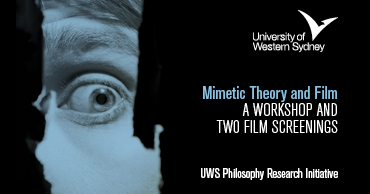
Workshop
When: Tuesday, October 27, 9.00 am to 6.00 pm
Location: Bankstown campus, Building 2, Lecture theatre 2.G.04
Mimetic Theory and Film looks at the possibilities of utilising René Girard's mimetic theory to analyse film. The one-day workshop has three highly distinguished guests, all pioneers in mimetic theory:
Prof Paul Dumouchel (Ritsumeikan University, Japan)
Prof Sandor Goodhart (opens in a new window)(Purdue University, USA)
Prof Paisley Livingston (opens in a new window) (Lingnan University, Hong Kong)
The workshop will be followed by a round table discussion with Dr Diego Bubbio and Dr Chris Fleming (Western Sydney University).
All welcome however registration is required for catering purposes. To register for the workshop please send your name and email address to Philosophy@westernsydney.edu.au.
Film Screenings
Each film screening is followed by a debate on the mimetic interpretation of the film.
Screening 1:
Pasolini's The Gospel According to St. Matthew, Introduced by Dr Diego Bubbio (Western Sydney University)
When: Friday, November 20, 3.00 pm to 6.30 pm
Location: Bankstown campus, 3.G.55
Screening 2:
Aronofsky's Black Swan
When: Friday, November 27, 3.00 pm to 6.30 pm, Introduced by Dr Chris Fleming (Western Sydney University)
Location: Bankstown campus, 3.G.55
Sentiment: A Critical Reassessment (8 December 2014)
A collaborative Writing/Thinking workshop
Presented by the ICLS (opens in a new window) (Columbia), Philosophy@UWS and the Writing and Society Research Centre (UWS)
Date: Monday, 8 December 2014
Time: 9.00 am - 5.30 pm
Location: Female Orphan School, Parramatta South Campus, University of Western Sydney [Getting to Parramatta]
Please download the full program (PDF, 65.3 KB) (opens in a new window) (note this may be subject to change)
Symposium conveners: Alex Ling and Lorraine Sim, School of Humanities and Communication Arts, University of Western SydneyIn light of the recent interest across the Humanities in emotion, affect and associated topics such as sensation, this symposium turns our attention to the related but largely overlooked category of sentiment. On the one hand we seek to remember the complex history of this term: its centrality, for instance, to eighteenth-century moral philosophy and aesthetics (the moral philosophy of Adam Smith and David Hume; the novel of sensibility), and the mechanisms by which it becomes, in the nineteenth century, conflated with the largely derisory concept of sentimentalism as an overabundance or banality of feeling, triviality of character, or as a descriptor for bad art. Given the demotion of sentiment to sentimentalism – one from which it has never fully recovered – this symposium invites us to reflect on the status of sentiment as a concept at this particular theoretical and cultural moment; to consider what traction it might offer us as a concept in various disciplines across the Humanities; and the ways in which it informs contemporary genres and media. Furthermore, in spite of the significant critical interest in emotion and affect in recent years, feeling is something that we are still warned against as academics engaged in the apparently objective activity of critique.
Speakers:- Professor James Chandler (opens in a new window) (Departments of English and Cinema and Media Studies, University of Chicago)
Abstract: Melodrama after Sentiment (opens in a new window)
Respondent: Robert Sinnerbrink (Macquarie University) - Professor Gil Anidjar (opens in a new window) (Department of Religion and MESAAS, Columbia University) (ICLS)
Abstract: Derrida's Holocaust (opens in a new window)
Respondent: Chris Peterson (UWS) - Assoc. Prof. Patricia Dailey (opens in a new window) (Department of English and Comp. Lit., Columbia University) (ICLS)
Abstract: Feeling Backwards: An Anglo-Saxon Poetics of Recall
Respondent: Louise D'Arcens (University of Wollongong) - Dr Sara Crangle (opens in a new window) (School of English and Co-Director of the Centre for Modernism Studies, University of Sussex)
Abstract: Mina Loy's Sentimental Satire (opens in a new window)
Respondent: Ann Vickery (Deakin University) - Dr Magdalena Zolkos (Institute for Social Justice, Australian Catholic University)
Abstract: Porous Skins and Sensible Bodies: Juxtaposition of the Sentimental and Affective Theories of the Subject (opens in a new window)
Respondent: Charles Barbour (UWS)
For more information, please download the flyer (PDF, 1119.34 KB) (opens in a new window)
New Spirits of Humanitarianism (11 - 12 December 2014)
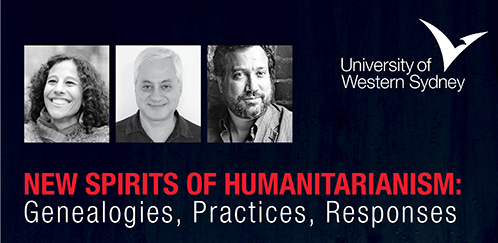
Organisers: Jessica Whyte and Sonja van Wichelen
Dates: 11-12 December 2014
Venue: Female Orphan School, Parramatta South Campus, University of Western Sydney [Getting to Parramatta]
The final program is available here PDF, 231.5 KB (opens in a new window)
Humanitarianism is changing. Increasingly professionalised and instrumentalised it has become a full-blown industry with its own standards of efficiency, transparency, evidence, and best practice. Replacing an earlier framework of internationalism, one which relied on the cooperation of nation-states and their commitment to international law, humanitarianism's justifications are more and more entangled in a politics of life intimately connected to wider forms of liberal governance. Today, the legitimating power of humanitarian reason lies not so much in the authority of the political subject as in a moral imperative to protect the depoliticised suffering body.
Emerging scholarship is attending to the transformation of humanitarianism into an extension of governmental attempts to manage populations and risks (Calhoun 2008; Fassin 2012; Ticktin 2011). No longer outsiders in the realm of realpolitik, "humanitarians" as David Kennedy starkly puts it, "increasingly provide the terms in which global power is exercised." (Kennedy, 2005). Uncovering humanitarianism's foundational paradox – that for all its claims to shared humanity it is premised on (postcolonial) inequality – the endeavour becomes a moral choice of wealthy nations at best and a form of state violence at worst (Weizman 2012). As such, while emergency relief operations rely on the performance, efficiency, and economic viability of the humanitarian industry, military institutions engage humanitarian reason to legitimate war and violence.
Humanitarian government affects the ways in which we conceptualise emergency, trauma, victims, and perpetrators. It gives new meaning to suffering and pain and reorders the worth of lives within liberal understandings of humanity. In conflict-ridden regions this is manifested in differential treatments of lives that need to be "saved" and the lives that are "risked"; but it is also evident in domestic border making within immigration politics and in the way in which differential regimes of inclusion and exclusion affect the everyday lives and subjectivities of asylum-seekers, refugees, and "illegal" migrants.
This workshop aims to problematise and explore genealogies, practices and responses to the new spirits of humanitarianism in late modernity. Central to the humanitarian focus on the suffering of bodies is the assumption that such suffering can be described independently of historical and contexts (Meister, 2011). In contrast to this approach, this workshop seeks to interrogate the emergence of humanitarianism and its continuing embeddedness in liberal governmental rationalities. It asks: What are the histories of humanitarian government? How does it relate to colonial and imperial contexts? If we can see it as a liberal diagnostic, what does it offer to western nations or liberal democracy? What relations exist between neoliberal forms of governmental rationality and humanitarian reason? What role do institutions play in according humanitarian aid and to what extent does this affect the morality of our modern liberal will?
Keynote Speakers
Ilan Kapoor, York University - "The Ideology of Celebrity Humanitarianism"
Miriam Ticktin, New School for Social Research, New York City - "Humanitarianism and Beyond: the Pasts and Futures of Care"
Eyal Weizman, Goldsmiths, University of London - "Lethal Warning"
Full abstracts and biographies (opens in a new window)
Keynotes are open to the public. Postgraduate students are encouraged to attend the workshop as well.
Only a limited number of places are available for scholars who wish to attend the workshop as a whole (please contact the organizers). Preference will be given to those working on humanitarianism and who can commit to attending the entire workshop.
Organisers: Jessica Whyte and Sonja van Wichelen
New Perspectives on Kant: A Symposium (18 August 2014)

The influence of Immanuel Kant's work on philosophy and the Humanities in general has been sustained across more than two centuries, but earlier orthodox understandings and glosses, focused on major texts and central concepts, have now given way to careful analysis of less obvious but important notions, which also have implications for contemporary philosophy. In particular, closer examination of various texts, which have been neglected in the past, such as the Anthropology and the writings on religion, has opened up new interpretive directions. This seminar brings together scholars working on Kant with the goal of emphasising new perspectives and interpretative angles.
Date & Time: Monday 18 August, 9.00 am – 4.30 pm
Location: Bankstown Campus, Building 5, Meeting Room 05.LG.03 (Change of venue)
Please RSVP philosophy@uws.edu.au by 10 August for catering purposes
Diego Bubbio (opens in a new window)- Christ as the Symbol of Conversion in Kant's ReligionJennifer Mensch (opens in a new window) – Rational History, Irrational Heart: From Anthropology to Grace in Kant
Paul Redding (opens in a new window) - By-Passing Transcendental Idealism from Kant's Late Pre-Critical Philosophy
Bruce Robbins (opens in a new window) - Hoping for Global Justice
The slogan "pessimism of the intellect, optimism of the will" has quietly committed progressives to a Kantian conception of hope that shares too much with the Christianity it comes out of. Can Hegel help us toward a more secular conception of hope?
Dennis Schmidt (opens in a new window) - Kant's 'Original Ethics
Diego Bubbio (opens in a new window) is ARC Future Fellow and Senior Lecturer in Philosophy at the University of Western Sydney. His research is mainly in the area of Kantian and post-Kantian philosophy. In particular he is interested in the relationship of the post-Kantian tradition (from Kant to Nietzsche) to the later movements of European philosophy, such as existentialism and hermeneutics, and in issues in philosophy of religion. He is the author of Sacrifice in the Post-Kantian Tradition: Perspectivism, Intersubjectivity, and Recognition (SUNY Press, 2014).
Jennifer Mensch (opens in a new window) specializes in the intersection of philosophy, science, and literature during the 17th, 18th, and 19th centuries. Her recent book, Kant's Organicism. Epigenesis and the Development of Critical Philosophy (University of Chicago Press, 2013) traces the decisive role played by life science theories of biological generation for Kant's account of mental cognition. She is currently Senior Lecturer at the Pennsylvania State University where she teaches philosophy and the history of science and medicine.
Paul Redding (opens in a new window) is a Professor of Philosophy at the University of Sydney. Paul Redding works mainly in the areas of Kantian philosophy and the tradition of continental idealism. In particular he is interested in the relationship of this tradition to the later movements of analytic philosophy and pragmatism, and in issues in idealist logic, philosophical psychology and philosophy of religion. He is a fellow of the Australian Academy of the Humanities.
Bruce Robbins (opens in a new window) is OId Dominion Foundation Professor in the Humanities in the department of English and Comparative Literature at Columbia University. His recent publications include the books Perpetual War: Cosmopolitanism from the Viewpoint Violence (2012) and Upward Mobility and the Common Good: Toward a Literary History of the Welfare State (2007) as well as articles on cosmopolitanism and secularism.
Dennis Schmidt (opens in a new window) is the Liberal Arts Professor of Philosophy, German, and Comparative Literature at the Pennsylvania State University. He previously taught at Villanova University and SUNY-Binghamton, and has had visiting professorships at the Università di Roma "La Sapienza" and the Universität Freiburg. He is the author of Idiome der Wahrheit (Klostermann Verlag, 2014); Between Word and Image (Indiana University Press, 2012); Lyrical and Ethical Subjects (SUNY Press, 2005); On Germans and Other Greeks (Indiana University Press, 2001); The Ubiquity of the Finite (MIT Press, 1988). He has translated Heidegger's Being and Time (2010) and Bloch's Natural Law and Human Dignity (1987). He has co-edited and written introductions for Heidegger/Gadamer Briefwechsel (2014); Difficulties of Ethical Life (2008); Hermeneutische Wege (2000). The SUNY Press "Series in Continental Philosophy" that he edits now has 138 volumes that include translated volumes by (among others) Heidegger, Schelling, Fichte, Hölderlin, Gadamer, Lyotard, Derrida, Nancy, and Lacoue-Labarthe, as well as original works in English.
ASCP Annual Conference (3 - 5 December 2013)
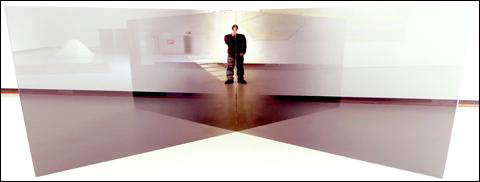
University of Western Sydney,
Parramatta Campus, 3 - 5 December, 2013
The Australasian Society for Continental Philosophy (opens in a new window) aims to provide a broad intellectual forum for professional academics and postgraduates researching topics in Contemporary European philosophy, and it is the premier reference point for people working within the diverse fields of Continental/European Philosophy in the Australasian region. The Australasian Society for Continental Philosophy Annual Conference (ASCP 2013) was held on the Parramatta Campus of the University of Western Sydney, December 3 to 5, 2013, hosted by the Philosophy Research Initiative, School of Humanities and Communication Arts.
Keynote addresses by:
Elizabeth Rottenberg
James Martel
Gianni Vattimo
Graham Harman and a plenary panel on the work of Rosalyn Diprose.
Followed by the one-day International Symposium on Hegel and Heidegger (6th December)
Call for Papers for Parrhesia
Following on from the Australasian Society of Continental Philosophy Conference 2013, we are pleased to announce the following publication opportunity:
Call for papers for a Special Issue of Parrhesia: A journal of critical philosophy
The publication of this Parrhesia issue, devoted to the 2013 Conference which was held at UWS in December 2013, is planned to coincide with the 2014 ASCP conference. Papers should be no less than 6,000 words and no more than 10,000 words in length.
The best paper by a postgraduate student will be awarded a prize of AU$500 and publication in Parrhesia. To be eligible, candidates need to be currently enrolled at an Australasian institution (this also include students who have submitted their thesis but have not yet had it conferred).
Information about the journal can be found on the Parrhesia website (opens in a new window)
Please follow the 'Style Guide' and 'References' instructions on the Parrhesia website (opens in a new window). The referencing system is based on the Chicago Manual of Style, using endnotes for references.
Papers considered for publication in the issue will be double-blind reviewed.
Deadline for submissions to Parrhesia is 1st March, 2014.
Please submit papers to ascp2013@uws.edu.au, using 'Submission to Parrhesia special issue' in the subject line. If you wish for your paper to be considered for the postgraduate prize, please mention that in the body of the email.
Diego Bubbio (Chair), Charles Barbour, Alex Ling, Dimitris Vardoulakis, Mariana Fragueiro.
Sex and Philosophy Symposium (1 April 2013)
The Sex/Philosophy Symposium (xplore-festival.com.au) took place on April 1st, 2013 at Critical Path, a choreographic research laboratory in Rushcutters Bay, Sydney. It was a day of reflections and meditations with contributions from philosophers, therapists, academics, sex professionals and enthusiasts. This initiative was driven by the desire to foster a culture of thoughtful conversation about sexuality that is not divorced from, but remains linked to, direct physical and emotional experiences. Taking place the day after a large three-day festival on sexuality, called Xplore (opens in a new window), it was intended that reflections on sexuality at the Sex/Philosophy Symposium would be supplemented by a practice of sexual exploration, to which participants had been exposed at the Xplore festival.
It was also the aim of the Sex/Philosophy Symposium to emphasize and promote certain philosophical values in the discussion of sexuality: values such as attention, economy and rigour in the use of language, permission to question intellectual presuppositions and unspoken assumptions, listening, tolerance of non-understanding and of conceptual aporias.
The idea for the symposium came from a recent study by French philosopher and psycho-analyst, Anne Dufourmantelle, entitled Blind Date: Sex and Philosophy.[1] Avital Ronell wrote a lengthy introduction to this text. An hour-long skype interview with Professor Ronell (NYU) was the plenary address, which opened the symposium. The occasion of Dufourmantelle's study is a casual, almost whimsical remark by Jacques Derrida that philosophers themselves almost never write about their own sex lives, as if such disclosure were taboo, as if it would endanger the capacity of their work to be taken seriously. Although there are exceptions to this rule, (notably Michel Foucault and feminists such as Elizabeth Grosz and Judith Buttler), for the most part philosophers rarely attempt to broach the relationship between sexual desire and the work that they do, as if the two were utterly distinct.
Contributions at the symposium included: "Queering Heterosexuality" with Janet Hardy, "Sex/Philosophy" with Avital Ronell; "Reinventing Pornography as a Commercial Genre" by Gala Vanting; "Lessons from a Whore" by Artemisia de Vine, "Ecstatic Experience, BDSM and Subspace" by Coleen Mullin, There were also artist talks by Dasniya Sommer and Garth Knight, a video of Berlin-based choreographer Felix Ruckert in conversation on the history and concept of the Xplore festival and a discussion with Peter Banki on "Leading a Double Life and Exploring Integration."
A proposal for publishing the proceedings of the conference is under review with Cambridge Scholars Press.
--------------------------------------------------------------------------------
[1] A. Dufourmantelle Blind Date: Sex and Philosophy Catherine Porter (trans.) (Evanston: University of Illinois Press, 2008).
New Foucault: A Symposium (9 November 2012)
Friday, 9 November 2013
Rooms 2G 04, 3G 55, Bankstown Campus UWS
The influence of Michel Foucault's work through the Humanities and social sciences has been sustained across more than three decades, but earlier orthodox understandings and glosses, focused on major texts and central concepts have now given way to careful analysis of less obvious but important contemporary implications. The recent publication and translation of Foucault's lecture series, and closer examination of various shorter texts has opened up new interpretive directions. This seminar brings together scholars working in three new directions drawing on Foucault's texts: theorizing law and neo-liberalism, renovating bio-political perspectives, and mobilizing critical concepts of experience and self-transformation.
Programme
Welcome
11.00 – 12.30 Session 1: Thinking Biopolitics beyond the Human
Matthew Chrulew (Macquarie University) - "Animals as Biopolitical Subjects"
Dinesh Wadiwel (University of Sydney) - "Thrasymachus' Objection: Examining Pastoral Power as a Mode of Sovereignty"
Paul Alberts (UWS) – "A Foucault for the Anthropocene"
Respondent: Melinda Cooper (U Sydney)
12.30 - 1.30 Lunch – Light Lunch provided
1.30 – 3.00 - Session 2: Foucault and Neo-liberalism
Paul Patton (UNSW) "Foucault's 'critique' of Neo-liberalism Revisited"
Miguel Vatter, (UNSW) - "Foucault and Hayek on the Nomos of Civil Society"
Respondent: Charles Barbour (UWS)
3.00 - 3.30 Afternoon tea
3.30 – 5.00 Session 3: Foucault and Critical Thought of Experience
Timothy O'Leary, (Hong Kong) – "New Tools, New Foucault? The Critique of Ethical Experience"
Jana Sawicki, (Williams, Mass.) – "Foucault, Feminism, and Queering Critical Thought"
Respondent: Allison Weir (UWS)
An Immanent Future? Music Beyond Past and Present (3 August 2012)
A Music and Philosophy Symposium
Inspired by recent innovative responses in philosophy to our rapidly changing, interconnected worlds, this symposium will be devoted to conversations about music beyond the past and present.
Date: Friday, 3 August 2012
Place: Performance Space, O.1.62A Kingswood, University of Western Sydney
RSVP to philosophy@uws.edu.au essential for catering purposes
Speakers:
- Professor Judy Lochhead (Stony Brook University, NY)
- Associate Professor Greg Hainge (University of Queensland)
- Professor Jennie Shaw (University of New England)
- Dr. Joseph Toltz (University of Western Sydney/University of Sydney)
- Ian Stevenson (University of Western Sydney)
- Dr. Sally Macarthur (University of Western Sydney)
Programme:
09:50 Welcome - Professor Peter Hutchings, Dean, School of Humanities and Communication Arts, UWS
10:00 "Chaotic Mappings: On the ground with music" Judy Lochhead (Stony Brook, NY)
11:00Morning tea break 11:30"Meeting the Composer Halfway: Which Anne Boyd?" Sally Macarthur (UWS)
12:15 "Music and the Intertextualities of Listening, Performing and Teaching"Jenny Shaw (UNE)
01:00 Lunch break
01:45 " Play it Again, Masami. On the Vexed Question of Noise and Music (reprise and variation)"
Greg Hainge (UQ)
02:45Afternoon break
03:00 "Restructuring Schaeffer's Sonic Objects" Ian Stevenson (UWS)
03:45 "Ethical encounters with determined others: ethnographic process and Holocaust survivor musical testimony" Joseph Toltz (USyd)
There is a strain of conservative resistance in the way music is discussed in the academy. Despite significant inroads by the new musicology (US) and parallel critical musicology (UK), there has been considerable opposition to the introduction of post-structural theory into musicology. As a result, issues of atrophy, degeneration and fatigue abound in philosophical discussions in the musicological discipline, and without new critical languages and conceptual templates its work will continue to languish in old epistemologies, doomed to trail behind those bold enough to reimagine the boundaries of disciplinary fields. What new critical languages and conceptual templates will function for music in the face of rapidly changing geopolitical and geomorphic realities? How do we proceed beyond anthropomorphic representation in our musical languages?
This symposium will seek to explore topics such as:
- Sensations, affects, and intensities as modes of addressing musical problems
- Music's existence outside aesthetics
- Music beyond structural considerations?
- Music beyond self and other
- Redeeming the empirical in music?
- Noise-sound-music, beyond categorical distinctions
- Music, resistant to representation?
- Music as radical experiment
About the speakers
Judy Lochhead, Stony Brook University, New York
Chaotic Mappings: on the ground with musicAbstract: In his book on the painter Francis Bacon, Gilles Deleuze develops the notion that art is a mode of thinking the world, establishing it as distinct from the other two modes of philosophy and science. While philosophy thinks the world through the creation of concepts and science through the creation of functions, artistic thinking entails the creation of sensations. Although Deleuze claims that his work in Francis Bacon: The Logic of Sensation is "philosophy, nothing but philosophy," he devotes considerable descriptive attention to the colours, lines, figures, textures, and gestures of several specific paintings. These descriptive accounts eventually serve to demonstrate what for Deleuze is the "logic of sensation" operating in Bacon's paintings and in artistic works generally. But they also serve another function—as a type of art criticism.
My paper develops the idea that Deleuze engages Bacon's paintings as a type of art criticism whose primary aim is not judgment but rather an account of art as sensation. His descriptive accounts of the paintings in terms of their material existence constitute what I call a chaotic mapping—a mapping of the paintings that explores and takes account of their chaotic potential. Here, however, I focus on music and utilize descriptive accounts that combine words and graphics to map musical sounds as artistic sensations. I consider briefly excerpts from two recent musical works: Prés for cello and electronics by Kaija Saariaho and String Quartet #3, Gaia, by Stacy Garrop. The chaotic mappings of these works demonstrate and exemplify a kind of detailed descriptive account of musical sound that takes a perspective from "on the ground." Such on the ground mappings of musical sound serve to intensify apprehension of these works of musical art and hence to serve as a type of music criticism.
Bio: Professor Judy Lochhead teaches music history and theory at Stony Brook University, New York. She is a theorist and musicologist whose work focuses on the most recent musical practices in North America and Europe. Utilising concepts and methodologies from post-phenomenological and post-structuralist thought, she addresses the uniquely defining features of this repertoire. Her work distinguishes between the conceptions of musical structure and meaning that derive from the differing perspectives of performers, listeners, and composers. Two recent articles include: "Visualizing the Musical Object" Expanding (Post) Phenomenology: A Critical Companion to Ihde, ed. Evan Selinger (SUNY Press, 2006), and '"How Does it Work?': Challenges to Analytic Explanation" Music Theory Spectrum 28/2 (2006). Lochhead also has articles appearing in Perspectives of New Music, American Music, The Journal of the International Alliance for Women in Music, Current Musicology, Theory and Practice, In Theory Only, Integral, Indiana Theory Review, and in various edited collections. With Joseph Auner, Lochhead co-edited Postmodern Music/Postmodern Thought (Routledge 2001). Lochhead's contribution to the 1997 Plenary Session celebrating the 20th anniversary of the Society for Music Theory was published as "Retooling the Technique" in Music Theory Online 4.2 (1998).
Sally Macarthur, University of Western Sydney
Meeting the Composer Halfway: Which Anne Boyd?
Abstract: The concept of 'identity' is central to how we think and write about music. The dominant model of the composer-identity is based in representational thought, defined in narrow, deterministic terms. In this model, the composer-figure is constructed as an uncreated creator, floating free of its social and institutional relations. It perpetually replicates itself as a stable, static, masculine entity, understood as inseparable from the musical work, and it competes for recognition out of its heroic independence and radical autonomy. The purpose of this paper is to challenge the habitual recourse to the image of the composer as individualistic and autonomous, and to its privileging of an anthropocentric view of music and the world. Focusing on the Australian composer, Anne Boyd, I will draw on two concepts – the 'event' and 'line of flight' – from the philosophy of Deleuze and Guattari to consider some alternative ways to think and write about the composer. What is at stake? On the one hand, the classificatory system enables the creation of identity that, in its uniqueness, is easily recognised. On the other hand, the recognition of an identity constructed on the basis of a given category is limiting. A familiar trope for Anne Boyd, for example, is that she is an Australian woman composer whose music represents the Australian landscape and is characterised by a South East Asian aesthetic. Her identity and her music are locked into a concept of negative difference. In this paper, I will open up possibilities for understanding Boyd as connected to life, ongoing and emergent in a relational field where non-human forces are equally important in constituting the composer's becomings.
Bio: Dr Sally Macarthur teaches musicology at the University of Western Sydney and specialises in twentieth and twenty-first century art music, and women's music. An important strand of her work exemplified in her recent book, Towards a Twenty-First-Century Feminist Politics of Music (Ashgate, 2010), draws on the work of Deleuze and Guattari to open up new ways of thinking about the absence of women's music. Other books include Feminist Aesthetics in Music (Greenwood Press, 2002), with co-editors Bruce Crossman and Ronaldo Morelos, Intercultural Music: Creation and Interpretation (AMC, 2006) and with co-editor Cate Poynton, Musics and Feminisms (AMC, 1999). She is published in a number of scholarly journals such as Radical Musicology, Cultural Studies Review, and Musicology Australia.
Jennie Shaw, University of New England
Music and the Intertextualities of Listening, Performing and Teaching
Abstract: Music often goes hand in hand with other artistic media: opera, film, computer games by way of example. Yet the complex technical language of art music restricts its practitioners and audiences to those who possess that technical knowledge. In the increasing number of undergraduate music programs that take students via traditional means (the classical music audition/essay) as well as via less conventional ones (e.g. the contemporary band recording or music appreciation class) that divide is both critical and defining.
This paper will examine ways in which recent contributions to post-structural philosophy and in particular to writings on and about intertextual practices, may help to bridge that divide in the way we share knowledge with our students and guide them in their listening to and performing of music. I argue that our understanding of intertextuality, with its roots in the writings of Kristeva and Barthes, has, through the intervention of literary and cultural scholars such as Culler, Fiske and Riffaterre, as well as through the culture of the Worldwide Web, shifted; intertextual readings of musical texts can now comfortably encompass processes of reading and interpretation. But where does this leave the concept of authorship? If our focus has shifted from the 'great men' of music to multifaceted, mediated interpretations of musical texts and their audiences, why does the academy persist in teaching music and musical works along canonical lines? My discussion will draw on established texts and more contentious 'threshold' works to examine the shifting cultural and interpretative contexts of this problem.
Bio: Professor Jennie Shaw is Pro Vice-Chancellor and Dean of the Faculty of Arts and Sciences at the University of New England. She completed undergraduate and postgraduate degrees in music and law at the University of Sydney and Stony Brook University, New York. She has worked as an alternative dispute facilitator and adjudicator and has taught law at Flinders University, as well as musicology at universities in the United States and Australia. Her research focuses on the Second Viennese School and musical modernism, music copyright and the intertextualities of composing and performance. Recent publications include The Cambridge Companion to Schoenberg (August 2010), co-edited with Professor Joseph Auner. Jennie also teaches oboe and plays oboe and cor anglais in The Armidale Symphony Orchestra.
Greg Hainge, University of Queensland
Play it Again, Masami. On the Vexed Question of Noise and Music (reprise and variation)
Abstract: In this paper, I will begin by suggesting why common sense definitions of noise and especially noise as it relates to music are problematic. I will suggest that in spite of the many contradictory and subjective meanings and definitions given to noise in many different fields and disciplines, it is possible to find some consistency across these definitions and to talk of the ontology of noise. This involves figuring noise as the nature or essence of the relation that is inimical to all expression when everything is conceived of as an expression, when ontology is relational, in other words.
In the second part of the paper, I will turn my attention to the question of noise and music that has travailed many scholars over an extremely long period of time. I will suggest that in figuring noise in the manner proposed in the first part of this paper, we are able to formulate some different ontological propositions about noise itself. Examining some of the most common assumptions made about the ontology of music, I suggest that the limits of certain ontological assertions made about music can be tested through application to the extreme limit case of very "noisy" works. Thus, through an analysis of Merzbow, I propose a new ontological taxonomy of music that is related to the ontological definition of music provided by Deleuze and Guattari yet which rejects outright the privilege that they accord to the refrain.
Bio: Associate Professor Greg Hainge is Reader in French in the School of Languages and Comparative Cultural Studies at the University of Queensland. He is also the Immediate Past President of the Australian Society for French Studies, an Associate Editor and the Australasian Officer for Studies in French Cinema, and he serves on the editorial boards of Culture, Theory and Critique, Contemporary French Civilization, Études Céliniennes, Corps: Revue Interdisciplinaire and the editorial advisory board of Altitude. Hainge has published a monograph on Céline which interfaces the later works of this most infamous of French authors with the poststructuralist philosophy of Deleuze and Guattari, and he has also published numerous book chapters on many different topics in film studies, cultural studies, literary studies, new media studies, experimental music, critical theory, and popular music. He has recently completed a monograph entitled Noise Matters: Towards an Ontology of Noise that will be published by Continuum.
Ian Stevenson, University of Western Sydney
Restructuring Schaeffer's Sonic Objects
Abstract: This paper reassesses the structurally determined model of everyday listening and its corollary reduced listening proposed by French composer-theorist Pierre Schaeffer (1966). By examining the consequences of the acousmatic revelation, the paper seeks to uncover the genetic processes implied by the new modes of listening that are produced and the resulting dynamic and multistable ontology of sound. Rather than essentialising the Deleuzian virtual, the Deleuzian reading of structuralism (1972/2004) is used as a guide to exploring the basic symbolic elements and differential relations that comprise each structural series and through which Schaeffer's concepts of sound and listening are articulated.
Having established the series of ordinary and specialist listening, Schaeffer is able, by introducing the new symbolic term 'reduced listening' to produce the new dimension of listening to sound as pure event. Rather than establishing 'reduced listening' and its correlated sound object as some sort of utopian virtual or purely differential mode of listening, it is perhaps more useful to consider all these aspects of sound as immanent to the field of sonic percepts.
Despite Schaeffer's abstracting and systematising tendency which apparently congeals the deterritorialised percept within a typo-morphological system (Schaeffer, 1966, p. 389) of repetition and representation, the thesis of this paper rejects the notion that Schaeffer's program for musical research provides merely the conditions of possibility that might determine a new music of the acousmatic. Rather, the paper proposes that by applying a Deleuzian reading of aspects of Schaeffer's system, the genetic process which has energised seventy years of diverse musical activity (INA, 2004), and stands to produce musics as yet unheard, can be explored and exploited.
Bio: Ian Stevenson is coordinator of Sound Technologies in the School of Humanities and Communication Arts at the University of Western Sydney. He is currently studying for a PhD at the University of Sydney. His research interests are in sonic communication, new musical interfaces, and spatial audio. He has recently produced and engineered a number of CDs of contemporary chamber music for Australian label Wirripang, and completed a series of collaborative projects with choreographer/dancer Tess De Quincey and author/academic Jane Goodall. Prior to joining UWS in 2004 he held a variety of positions in product and information management for leading Australian technology companies such as Fairlight and DSP Media. He has worked as an artist, engineer, sound designer and production supervisor in galleries, theatre, live music, broadcast and post-production in Australia, Europe and the UK.
Joseph Toltz, University of Sydney and University of Western Sydney
Ethical encounters with determined others: ethnographic process and Holocaust survivor musical testimony
Abstract: The ethnographic study of music in 'othered' societies encountered significant challenges to its disciplinary premises at the same time that anthropology and history began to deal with concepts of self and other, power relations and post-colonial sensibilities. Representation itself was under critical examination, with the knowledge that representation of the other was no longer a neutral, viable practice in the light of new concerns. But what of encounters with multiplied other experiences? How can an ethnographic study take into account such multi-layered, multi-faceted situations? My twelve-year journey with just under 100 Holocaust survivors could be read as a multi-layered study of the position of othering. The project embodied a notion of musical testimony: survivors would re-explore personal narratives, searching for musical experiences that accompanied their experiences in camps, ghettos, in hiding or in partisan groups. With ethical sensitivity, my process aimed to bring out such experiences in order to explore the nature of survival and existence, encountered through the plane of memory and recall. The study aimed to transcend teleological notions of history and certainty by recording memories of musical experience, discussing the place of such memories in the lives of the survivor today. This paper will explore the theoretical model of musical testimony as a way of seeing music, an active, performative practice of the present, as a conduit to new ways of commemoration. Musical testimony allows for dynamic interaction with past memory, contributing to memory studies in a significant manner, and in a sense liberating the study of music in this context from the historical trajectory.
Bio: Dr Joseph Toltz completed his dissertation 'Hidden Testimony: musical experience and memory in Jewish Holocaust survivors' at the University of Sydney (2010), interviewing over 80 Holocaust survivors around the world. In 2011 he was the Barbara and Richard Rosenberg Fellow at the United States Holocaust Memorial Museum. He has presented at eight institutions and conferences in the past twelve months. Joseph has most recently published in Holocaust Studies: A Journal of Culture and History (Vol. 16:3). He has also written on the electronic group Kraftwerk (Continuum: London 2011); on the children's opera Brundibár (Context, Vol. 27-28, 2008); and on the Jewish approach to illness (Spirited Practices, Allen & Unwin: Sydney, 2007). Joseph is an adjunct lecturer and tutor at the University of Sydney and University of Western Sydney.
Modernism, Intimacy and Emotion (6 - 7 February 2012)
Philosophy@UWS is proud to present Professor Henry Sussman (Yale University) as one of the international keynote speakers at the inaugural Australian Modernist Studies Network Symposium, which will be held at the Grace Hotel, Sydney in February 2012. The conference, which is based on the theme 'Modernism, Intimacy and Emotion', will also feature presentations by Professor Sascha Bru (K. U. Leuven) from the European Network for Avant-Garde and Modernism Studies, Associate Professor Jonathan Flatley (Wayne State University) and Professor Gail Jones (University of Western Sydney). For further information, please visit the AMSN website.
Sacrifice in Life, Love and Literature (13 - 14 January 2012)
The work of French philosopher and literary critic, René Girard continues to garner international attention across a range of disciplines. Sacrifice in Life, Love & Literature (opens in a new window)is the 2nd Annual Conference of the Australian Girard Seminar and will be taking place on the 13th-14th January at the University of Melbourne. Dr Chris Fleming is national Vice-President of the Australian Girard Seminar(opens in a new window) and the ongoing conference represents a distinctive expression of expertise in continental philosophy in Australia and a major research strength at UWS.
This conference seeks to explore Girard's major insights in an inter-disciplinary forum, particularly in light of the latest scholarship emerging from the region. The Seminar is issuing a call for papers and workshop proposals. It welcomes proposals from any field of study as it relates to the work of Girard. Papers are to be strictly of a length for a 20-minute presentation. Proposals for workshops should be able to give a description and rationale for an inter-active forum on a particular topic to be led for approx. 30-45 minutes by appropriately qualified persons. For more information or to send a proposal (including a title, 150-word abstract and contact details), please email Dr. Joel Hodge, by 18th November, 2011.
This conference is supported by Philosophy@UWS (University of Western Sydney).
Mobile options:

